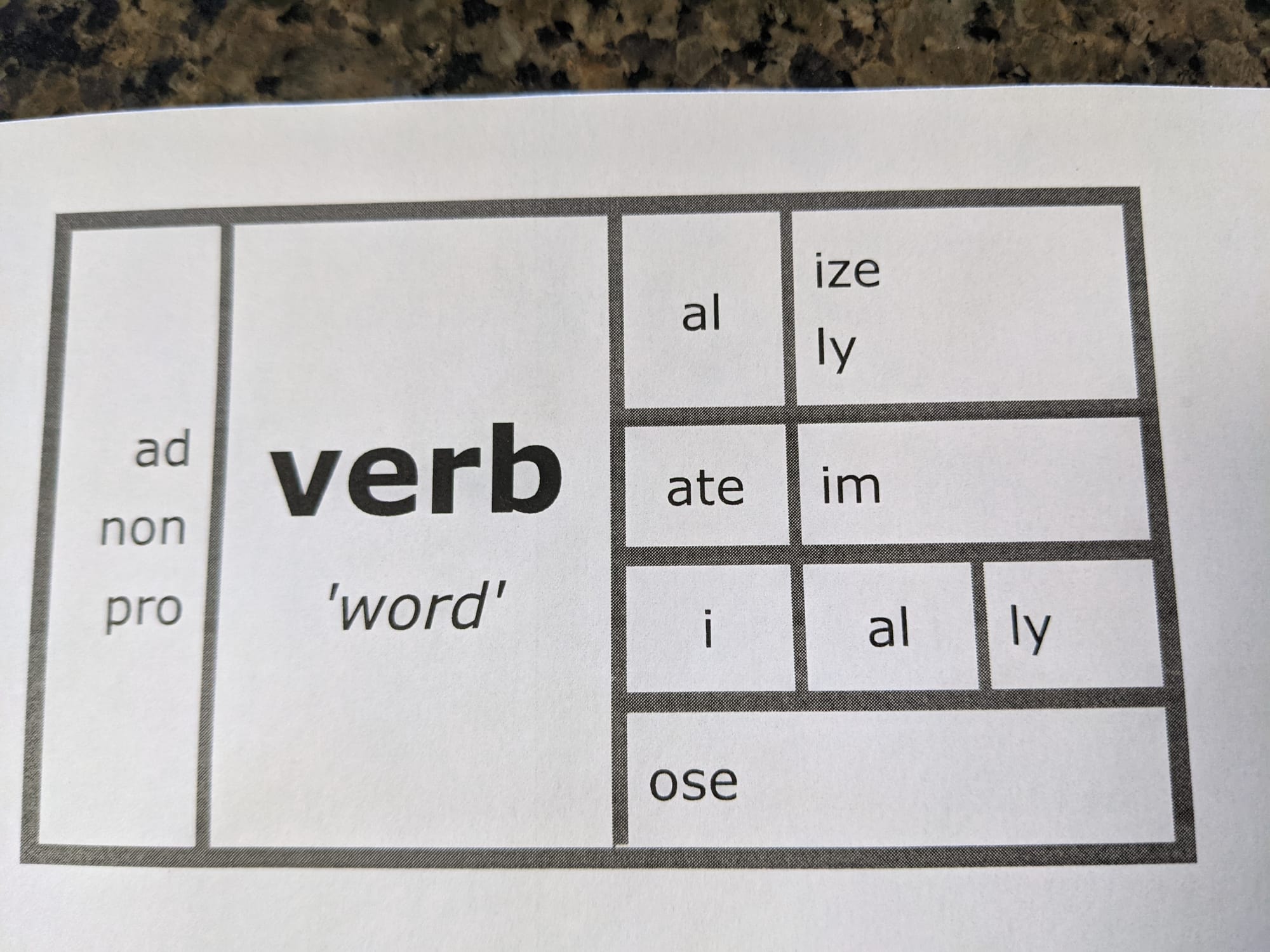I love serendipity.
You know how, when you buy a new car, you suddenly start seeing that car everywhere? Or when you learn a new word, you start noticing it in more places?
It's the same with conceptual work. Sometimes, when I am deeply engaged with a particular study, I notice opportunities to share that study with my kiddos, my colleagues, or both.
Next week, I am offering a Pop-Up class on Denotations & Connotations. It's something I study with my clients: the difference between the orthographic denotation – the historical meaning – of a base element and the connotations – the uses and associations – of the words in its family. This is a critical orthographic understanding, and it allows us access to meaning and spelling in powerful ways.
After I made the Pop-Up available here, I have noticed that the concept of denotation and connotation has popped up (ha!) in a couple of my study sessions with kiddos, without me even trying. The most recent example was with Rosemary, a rising 6th grader who is transitioning from homeschool to school-school this fall. One of her goals is to study Latin and Classical Greek. I told her today that she will probably be very surprised by how much she understands about language in comparison to her peers once she is in school. She is an ambitious, creative, funny, curious girl who loves a challenge.
When I meet with my clients, I always have a target planned for our time together, but I also always give them the chance to bring up a language question that they'd like to undertake for the day. Today, Rosemary asked me a really astute question about the word proverb, and I immediately realized that her question was about denotation and connotation. Her question was serendipitous, and our exploration was revealing for both of us!
You know, the Pop-Up classes are always really rich and productive. I've got clients who show me how they create an entire weeks-long course of word study for their own students based on one 90-minute Pop-Up class. Even though I'm taking a sabbatical from LEXinars in 2025 so that I can revamp them and connect them to graduate and continuing education credits, I will be teaching 1 or 2 Pop-Ups a month throughout that year. A single Pop-Up is worth more than a year's subscription, and many paid subscribers take multiple Pop-Ups each year. One of the best things about them is that I show you how I present deep or challenging content to my students, and give you lots of examples that you can use in your own work or study.
Here's how I handled denotation and connotation with Rosemary, and how I turned her thoughtful question into a rich, valuale study. Also, how she made me teary because that kid is such a darn poet. There will be more on denotation and connotation in next week's class, and there's still room for a few more people.

